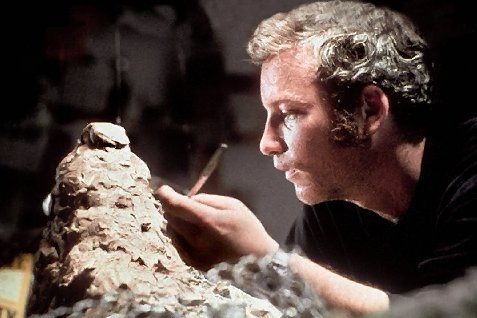|








|
 |
Close Encounters of the
Third Kind (1977)     

|
Director:
Steven
Spielberg |
COUNTRY
USA |
Genre
Science
Fiction |
NORWEGIAN TITLE
Nærkontakt
av tredje grad |
|
RUNNING
TIME
137
minutes |
|
Producers:
Julia
Phillips
Michael Phillips |
Screenwriter:
Steven
Spielberg |
Review
With Close Encounters of
the Third Kind, Steven Spielberg took a fully realistic approach to
a by all accounts fantastical phenomenon: What if aliens are actually
visiting earth as we speak? And what if regular people have close
encounters with them? Apart from being a clever story, the first of only
three of his films that Spielberg wrote himself (the others being
Poltergeist and
A.I.), it’s the inquisitiveness and
childlike determination in search of answers which makes this such an
enthralling, timeless experience. Sets and visual effects are always
locked in time, but all other elements in this film are universal and
timeless – none more so than the subject of music and its crucial
importance for the film’s explicit story and metaphorical strength. In
Close Encounters, music is broken down into theory and given the
role as mediator; it’s evocative thanks to its mathematical precision
more than its «soul», to put it grandiloquently. Music is the missing
link, the hero character, which is otherwise absent in the film. The
same can be said of villains. This is no simple story of good and bad,
right and wrong – a fact that makes Spielberg’s achievement so much more
impressive. Because the film is never lacking in intensity or suspense,
despite being patient all the way from the build-up through to the
spectacular finale. As with
E.T. five years later, Close
Encounters represents Spielberg at his most optimistic on behalf of
humanity. The film is a celebration of our need for exploration and our
sense of wonder. And it’s also a testament to a great director at the
height of his powers. The film catches him right at the time when he has
earned himself big budgets, but before he has had the time to reflect on
his own stature. And that’s often perfect timing for a magnum opus –
which Close Encounters of the Third Kind undoubtedly is for
Spielberg.
* This review is based on the Director's
Cut edition, released in 1998 *
|
|